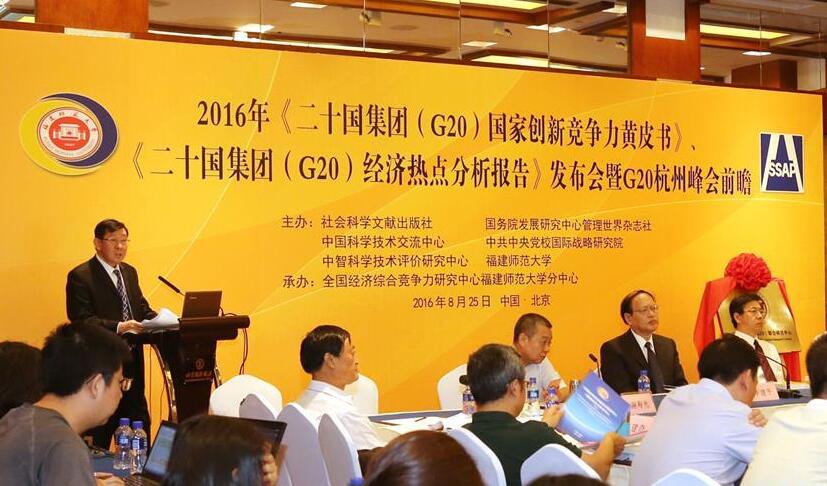Report: Information technology drives development in G20 states

The Research Report on G20 National Internet Development was released on Aug. 31 in Beijing, suggesting G20 members face shared challenges in terms of cybersecurity.
The Internet economy has become a significant source of momentum for economic development, and the average IT penetration rate of the Internet in G20 member states stands at 69 percent, exceeding the global average, according to a recent report.
The Research Report on G20 National Internet Development released on Aug. 31 was jointly compiled by the Academy of International Internet at Shantou University, the Center for China and Globalization, and other institutions.
The report suggests that the penetration rates of information technology in the developed nations of the G20 have reached a bottleneck, while emerging nations in the group still have enough room to grow. And the Internet economy in developed G20 nations accounted for about 5.5 percent of member nations’ GDPs on average, while the figure for developing nations was about 4.9 percent.
When analyzing the top 10 social network services in each nation based on popularity, China and the United States independently accounted for all the top 10 services through their domestic enterprises. While South Korea, Russia, Indonesia and Turkey shared the market with the United States, the rest of the G20 nations basically depend on US enterprises to provide all these services, according to the report.
The report also suggests that China and the United States are the most prolific innovators of Internet applications. Meanwhile, mobile Internet is the main driver of Internet innovation in the emerging nations like India, Indonesia and Brazil, as e-commerce, Internet finance and Online-to-online (O2O) services are springing up in these nations.
The report suggests that these areas will not only be target markets of nations with advanced Internet technology but also the main arteries for the development of a global Internet economy.
The focus of Internet development strategies in G20 nations is shifting from infrastructure building to a more comprehensive strategy, and the next step will be the deep integration of information technology with industrial technology, according to the report.
G20 members face shared challenges in terms of cybersecurity, which is frustrated by such issues as the friction between nation sovereignty and Internet sovereignty, the online spread of terrorism and religious extremism, and trans-border data flows, according to the report.
The digital gap in developing nations is still the focus of Internet development. The developed nations in G20 face the problem of high business and labor costs, while the developing nations face problems like market insufficiency and underdeveloped Internet infrastructure, according to the report.
Niu Dongjie is a reporter at the Chinese Social Sciences Today.

 PRINT
PRINT CLOSE
CLOSE